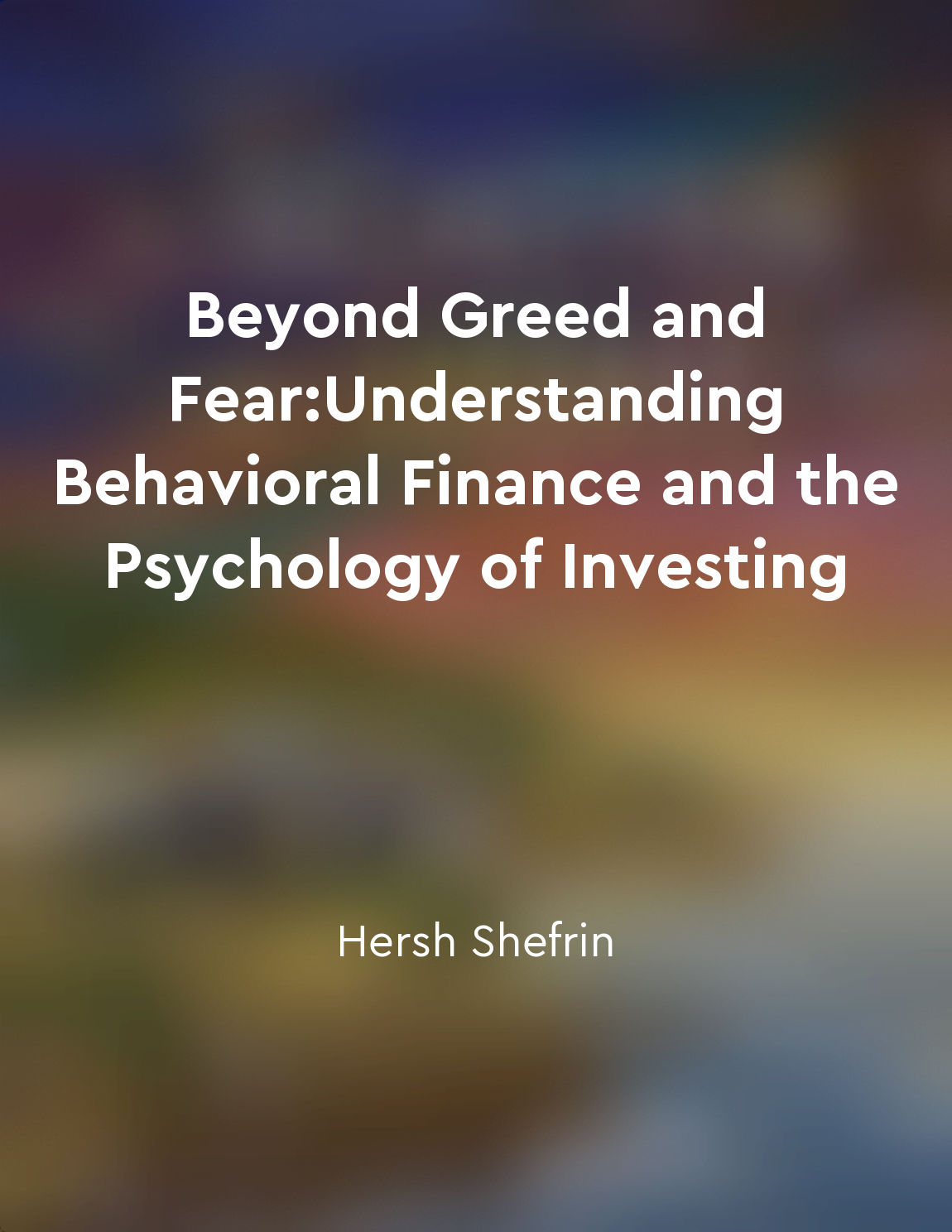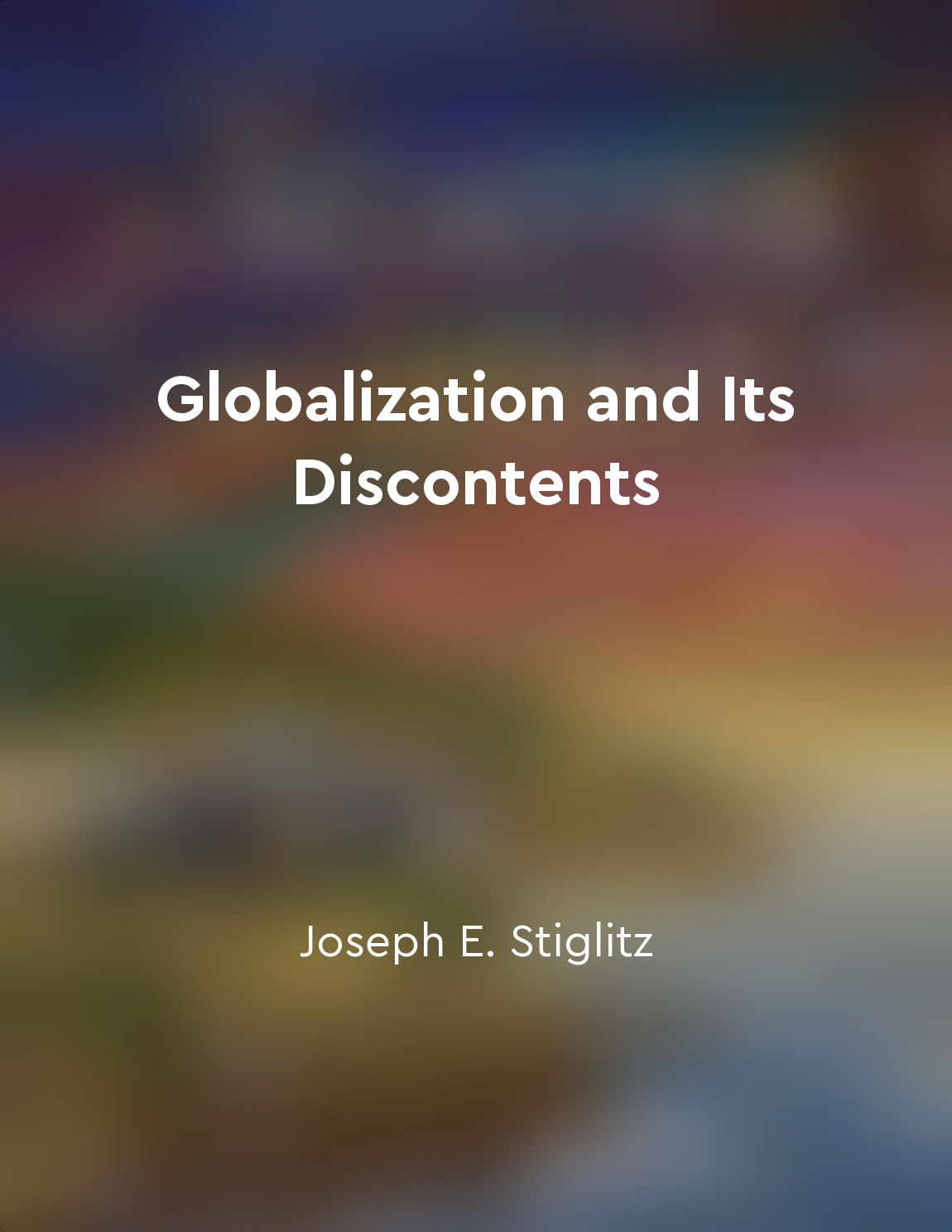Exogenous shocks can catalyze crashes from "summary" of Why Stock Markets Crash by Didier Sornette
Exogenous shocks can catalyze crashes in financial markets when they trigger a chain reaction of cascading events that lead to a sudden and dramatic downturn. These shocks can come in various forms, such as geopolitical events, natural disasters, or unexpected economic news. When an exogenous shock occurs, it can disrupt the normal functioning of the market and create uncertainty among investors. This uncertainty can lead to panic selling as investors rush to mitigate their losses, causing prices to plummet. As more investors sell off their assets, it can create a domino effect where prices continue to decline rapidly. The impact of an exogenous shock on the market can be amplified by factors such as leverage and herding behavior. When investors have borrowed money to finance their investments, a sharp decline in asset prices can force them to sell off their holdings to meet margin calls, further exacerbating the downward spiral. Additionally, when investors observe others selling off their assets, they may feel compelled to do the same out of fear of missing out on potential gains or in an attempt to limit their losses. Exogenous shocks can also reveal underlying vulnerabilities in the market that have been building up over time. For example, a sudden interest rate hike by the central bank may expose overvalued assets or excessive risk-taking by investors. When these vulnerabilities are exposed, it can trigger a wave of selling that results in a crash.- Exogenous shocks play a crucial role in catalyzing crashes in financial markets by disrupting the status quo and creating a ripple effect of panic and uncertainty among investors. Understanding how these shocks can impact the market is essential for investors and policymakers to better anticipate and mitigate the risks associated with market crashes.
Similar Posts
Economic growth does not solve all problems
The belief that economic growth can solve all problems is deeply ingrained in our society. We are often told that if we can jus...
Warning signs were ignored
In the years leading up to the crash, many warning signs were present but were largely ignored by those in positions of power a...

Emotion regulation strategies can help mitigate irrational behaviors
When it comes to investing, emotions can often cloud our judgment and lead to irrational behaviors. These irrational behaviors ...
The Federal Reserve's response to the Great Depression was controversial
The response of the Federal Reserve to the Great Depression elicited a significant amount of controversy and debate among econo...
Risk tolerance varies among individuals
Different people have different attitudes towards risk. Some individuals are more willing to take on risk in exchange for the p...

Regulators turned a blind eye to warning signs
The regulators charged with overseeing the mortgage market had one job: to prevent disaster. They were supposed to keep an eye ...
The failure of government oversight
The failure of government oversight is a central theme in the book, illustrating how regulators and policymakers fell short in ...

Globalization has led to the erosion of worker rights in many countries
Globalization has resulted in a race to the bottom in terms of workers' rights in many countries. As companies seek to cut cost...

Capital accumulation is essential for economic growth
In order for an economy to grow and prosper, it is imperative that capital accumulation takes place. Capital accumulation refer...

Emerging markets offer growth opportunities but also pose risks
Emerging markets are often seen as promising environments for businesses looking to expand their operations. These markets typi...

